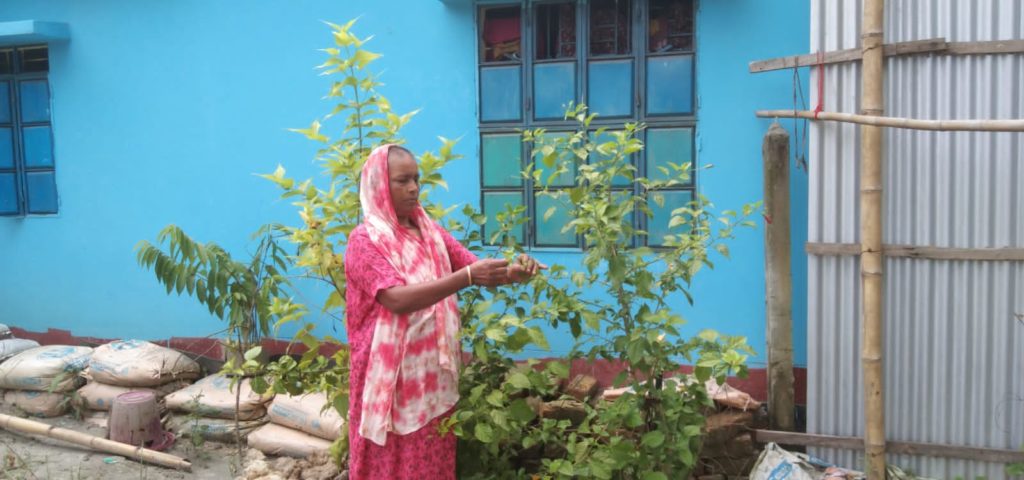Anjali Rani blames chemical pesticides for her breast cancer. Anjali, a 55-year-old mother of three from Eliotganj, Comilla District in Bangladesh, sprayed chemical pesticides regularly for 30 years together with her husband, Jatilal Dev.
Jatilal died of lung cancer in 2011. After his death, Anjali continued to work in agriculture while she served as female union parishad* member in the local government. To help her sons, all working as migrant laborers in Malaysia, she had to work extra hard to pay off high interest loans. Eventually, she was forced to sell a part of their family land.
Anjali was later diagnosed with breast cancer after complaining of extreme fatigue and lack of appetite. “I did not realise in the past how harmful chemical pesticides are. I do not remember the names of the pesticides we used, but my eyes used to get red when we sprayed them. If only I knew these and took precautions, I might not have cancer today,” she said.
Anjali stopped using chemical pesticides nine years ago, when she joined the SHISUK Women’s Association and received trainings that made her aware of the impacts of pesticides, and was taught how to make organic fertilizers and biopesticides. “Now, I am the one who instructs farmers on the adverse effects of pesticides on our body and health.”

Because of her illness, she does not work as much in agriculture but still grows spinach and amaranthus in small quantities in her remaining piece of land. She uses organic fertilizers from house waste, cow dung and fish scales. She attests that crop quality is better with organic fertilizers.
SHISUK also educated her on the negative effects of chemical pesticides on biodiversity. “Before, when we dug the soil, I used to see a lot of insects, worms, and bugs. There used to be swarms of bees in every farm. When we were doing chemical agriculture, we rarely see bees. When I stopped using pesticides, however, many varieties of birds could be seen again, like before. In nature, everything has a role. If biodiversity is not preserved, this system fails,” she said.
Anjali hopes that everybody stops using chemical pesticides. “The government should find a way to replace chemical pesticides so that better agriculture can be done without harming the environment and the health of farmers.” ###
*parishad – union council, also known as rural council
Women In Agroecology: Towards Pesticide-Free Communities is a continuing storytelling initiative of PAN Asia Pacific and its partners to document stories of rural women who are survivors of pesticide poisoning and/or making the transition to agroecology.
Our contributing partners: Shikkha Shastha Unnayan Karzakram (SHISUK), Bangladesh; Society for Rural Education, India; Gita Pertiwi, Indonesia; Thanal Trust, India; PAN India; and Sustainable Agriculture and Environment Development Association (SAEDA), Laos








Discussion about this post